Student projects
Explore the projects that students from around the world are creating with Red Pitaya or learn from our teaching materials !
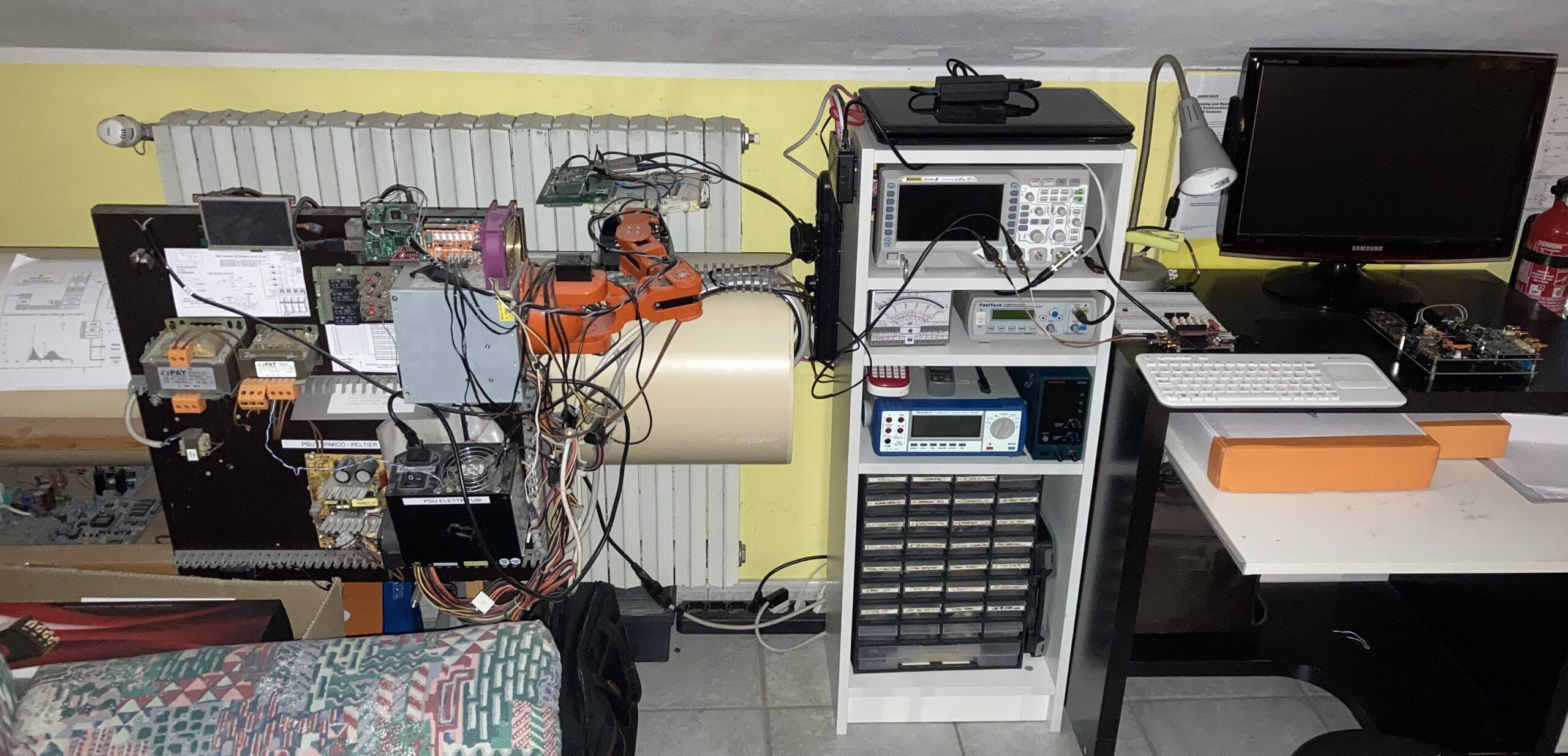
University of Turin and Collegio Einaudi
DIY muon telescope: Homemade innovation for secondary cosmic ray detection with synchronized data acquisition
This project showcases a DIY telescope designed to detect muons from secondary cosmic rays.

Nicolaus Copernicus University
Auto Relocking ECDL Laser by Red Pitaya
This project is for automatically relocking the External Cavity Diode Lasers (ECDLs) by wavemeter and/or cavity transmission using Red Pitaya.

Technical University of Cluj-Napoca
Red Pitaya based low-cost SDR platform
In this project, a large-bandwidth low-cost SDR architecture is developed based on a Red Pitaya board. The components of this architecture are chosen so that the bottleneck in the transmit/receive chain will be the board.
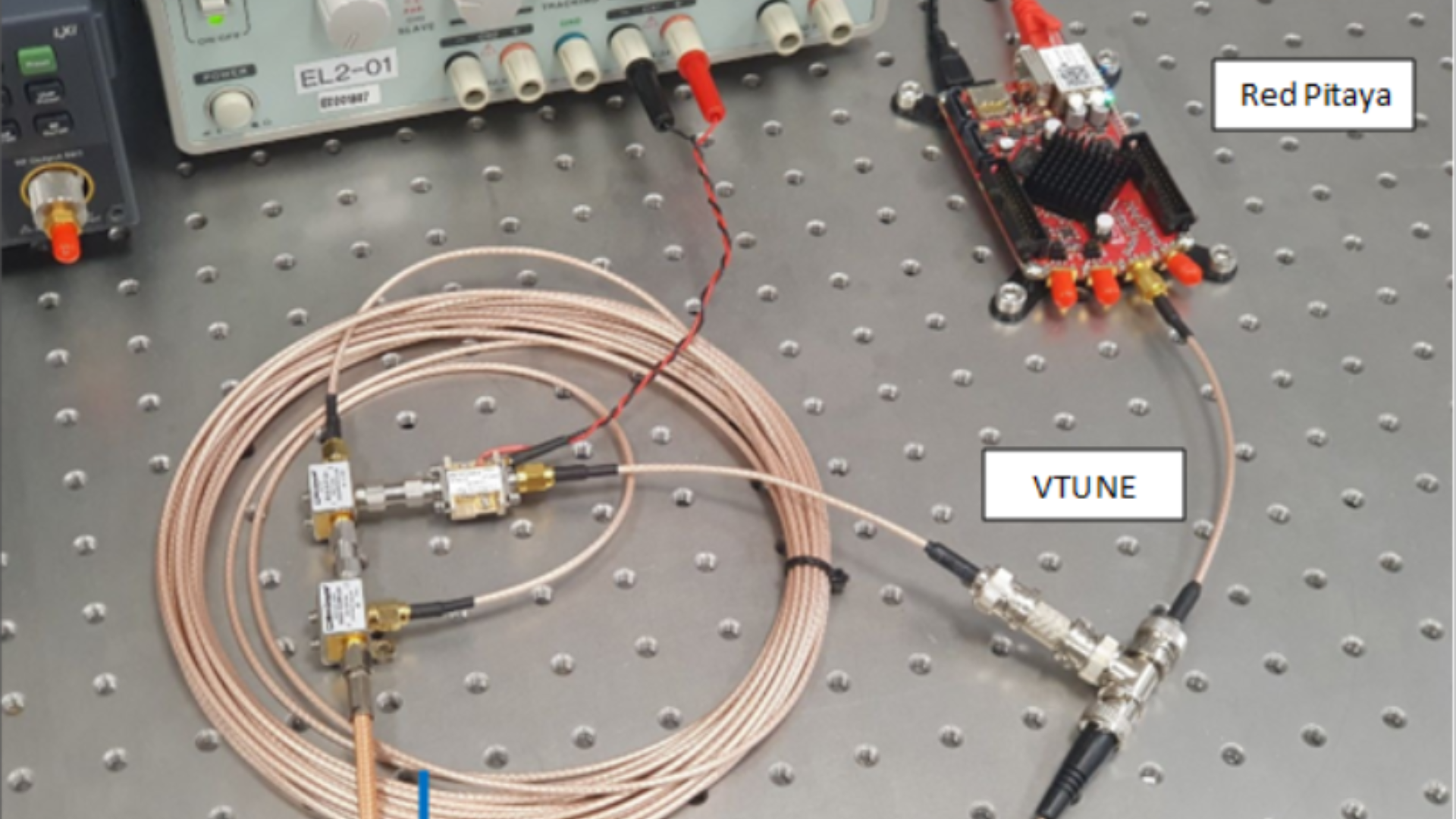
Terahertz Engineering Laboratory at the University of Adelaide
Linearization of a voltage-controlled oscillator with Red Pitaya
In this article, a Red Pitaya board is used to linearize a voltage-controlled oscillator (VCO) for use in a Frequency Modulated Continuous Wave (FMCW) radar system.
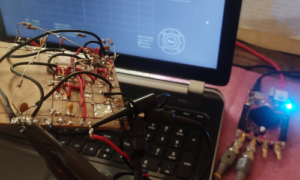
M. S. Ramaiah University of Applied Sciences
DIY High Frequency Voltage Controlled Oscillator (VCO)
An easy and simple high-frequency VCO design using 3 x LM393 comparators and passives which is capable of generating square, triangular wave signals with a tunable frequency range up to 100kHz depending on the control voltage +Vc fed into the circuit.

SASTRA Deemed to be University
Sine Wave Generation using IC 555 and LPF
Step-by-step explanation and design of a sine wave generator with the help of STEMlab 125-10.

SASTRA Deemed to be University
Wireless Audio Transmission using Li-Fi
A step-by-step tutorial on how to use STEMla 125-10 as a Li-Fi modulator to build a wireless Li-Fi circuit for audio transmission.
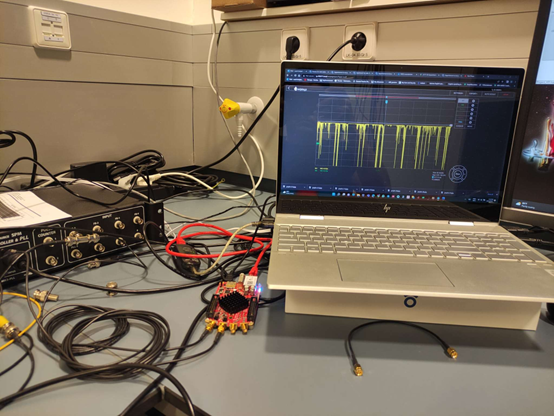
Leiden University
Using a Red Pitaya device as a PID controller for a Scanning Tunnelling Microscope
Saeid Behjati a PhD student at Leiden University developed a new Scanning Tunnelling Microscope (STM) as a part of his PhD program. Read how he has developed mechanical parts as well as some analog circuits for this project.

Ludwig Maximilian University of Munich
Measurements on the Dynamics of
Dissipative, Comb-Driven Solitons in
Femtosecond Enhancement Cavities
Temporal optical solitons are localized electromagnetic waves that maintain their shape while propagating through a nonlinear dispersive medium, and in nonlinear optical cavities, they exist as temporally dissipative solitons. This thesis builds on previous work to improve the experimental setup for investigating comb-driven cavity solitons, aiming to scale their bandwidth towards the few-cycle regime and providing insights into their dynamics and potential applications in spectroscopy and other areas.

Auburn University
Keyboard technology: A 3D printed piano action and self-tuning controller
How could a 3D-printed piano action help achieve the goal of creating a keyboard instrument that can withstand extreme humidity and temperature while offering enhanced musical adaptability? The self-tuning experimental setup uses a Red Pitaya unit to collect data from the piano strings.
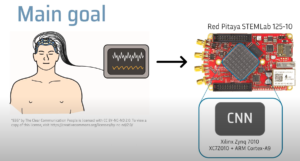
University of Zaragoza
BCI with the Red Pitaya
STEMLab 125-10
In this work, an EEGNet-based architecture is implemented on the FPGA of the Xilinx Zynq 7010 system-on-chip (SoC), the core of the Red Pitaya STEMLab 125-10. To achieve this, two optimization strategies are explored: some data reduction techniques to control the size of the model, and the fixed-point representation of the network.
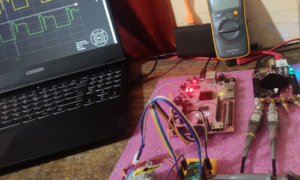
M. S. Ramaiah University of Applied Sciences
Stepper Motor Controller using PYNQ-Z2
Implementing a softcore stepper controller on FPGA and running a custom overlay on PYNQ to control the motor using Python programming. One of the benefits of this method would be to easily scale up the stepper controller design and implement multiple of them on digital logic.
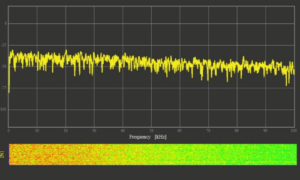
M. S. Ramaiah University of Applied Sciences
Noise Generator Circuit
Noise. It's everywhere and is inevitable, but it comes essential sometimes specifically and is fun to play with randomness. I am using a 2 transistor noise generator circuit which in fact induces noise in one transistor with an open collector and the other one amplifies it to provide the noisy output. The output is random and peaks are over around 0 to 30kHz(in the spectrum waterfall chart).

Purdue University
A home lab with Red Pitaya
This is a guest blog post, written by William Siffer, an electrical engineering student at Purdue University. He writes about how he used Red Pitaya as a tool for his home lab project.

University of Ljubljana, Faculty of Computer and Information Science
Red Pitaya as an IoT device
A Red Pitaya SIGNALlab 250-12 got turned into an IoT device using its input 1 as a sensor and sent the readings of amplitude to the cloud.
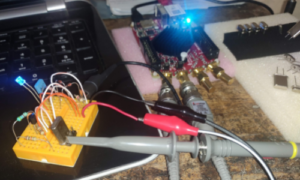
M. S. Ramaiah University of Applied Sciences
DIY Crystal Tester Circuit
Xtal are found in most RF and processing circuitry as an external component to provide clock and time reference for synchronization of internal system operations. Easy to find, get and collect, but testing them isn't that straightforward which is precisely what the project is about.
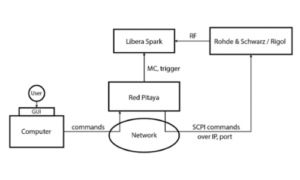
University of Ljubljana, Faculty of Computer and Information Science
Particle Accelerator Simulator
The Particle Accelerator Simulator is an application that uses a Red Pitaya STEMLab 250-12 to set the parameters on a Libera Spark, an Instrumentation Technologies' beam position monitor particle accelerator. Red Pitaya sets Spark's machine clock on output 1 and triggers on output 2. It also sends SCPI commands to Rigol or Rohde & Schwarz's signal generator to generate RF signals.
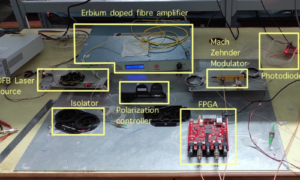
Indian Institute of Technology Madras
Coherent Ising Machines
An implementation of a Coherent Ising Machine with a photonic circuit and SIGNALlab 250-12 programmed as an FPGA to function as the ADC, DAC, and feedback in the system.
Share your Red Pitaya project!
We hope that featuring your project/article on our website and social media channels would bring more traffic and exposure back to you (unless you specify differently).